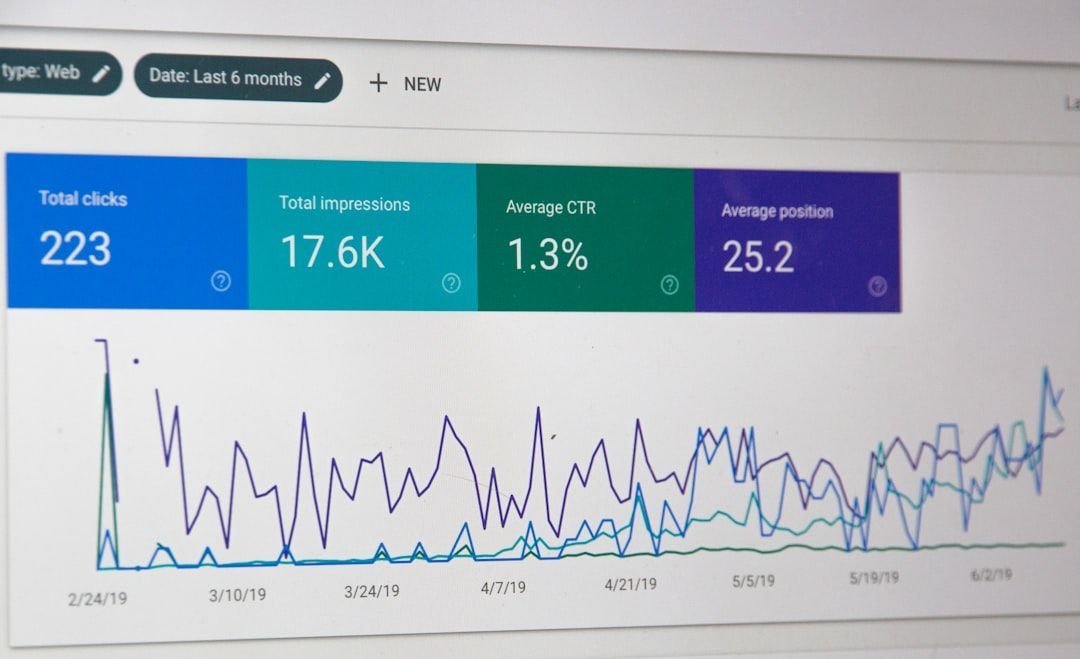7 Essential SEO Features Your Small Business Website Needs (And How to Get Them Easily)
Did you know that 93% of online experiences start with a search engine? For small businesses, this means having a strong online presence is no longer optional—it’s a must. With over 8.5 billion daily searches on Google, your website needs to stand out to attract potential customers.
Small businesses often face unique challenges when it comes to visibility. Unlike larger companies, they need tailored strategies to compete effectively. That’s where specialized tools and techniques come into play. From optimizing your
content to ensuring your
site is mobile-friendly, every detail matters.

Google’s mobile-first indexing now impacts 100% of searches, making it crucial for your website to perform well on all devices. Additionally, 53% of all website traffic comes from organic search, highlighting the importance of improving your ranking.
Whether you’re a local bakery or a growing service provider, the right approach can make a huge difference. For example, one bakery saw a 189% increase in traffic by implementing these strategies. Ready to boost your online presence? Let’s dive into the features that can transform your website.
Key Takeaways
- 93% of online experiences begin with a search engine.
- Small businesses need tailored strategies to compete online.
- Google’s mobile-first indexing affects all searches.
- 53% of website traffic comes from organic search.
- Specialized tools can significantly improve your ranking.
Why SEO is Crucial for Small Businesses
In today’s digital age, visibility can make or break a small business. With millions of searches happening daily, appearing in top search engine results is critical. Without proper optimization, your site risks being buried under competitors.
The Role of SEO in Online Visibility
Search engines like Google use a process called crawl-index-rank to determine which pages appear in results. Sites that follow best practices are three times more likely to rank higher. For example, a local coffee shop optimized for "near me" searches saw a significant boost in foot traffic.
Another key factor is content freshness. Pages updated regularly can see a 37% improvement in ranking. This highlights the importance of keeping your website current and relevant.
How SEO Can Drive Traffic and Conversions
Effective strategies not only improve visibility but also drive traffic and conversions. For instance, an HVAC company increased conversions by 40% in just six months by focusing on targeted keywords and links.
Statistics show that 75% of users never scroll past the first page of
search results. This makes it essential to aim for top positions. Higher rankings also lead to better click-through rates, directly impacting your bottom line.
| Device | Conversion Rate |
|---|---|
| Mobile | 2.25% |
| Desktop | 4.31% |
By focusing on
user experience and implementing proven strategies, small businesses can achieve lasting success in competitive markets.
Optimize Your Website for Mobile Users
With mobile devices dominating web traffic, your
site must adapt to stay competitive. Over
68% of website visits now come from mobile devices, making a
mobile-friendly design essential. Google’s mobile-first indexing also means your
page performance on mobile directly impacts rankings.
The Importance of Mobile-First Indexing
Google now prioritizes mobile versions of your site when determining rankings. This shift means that if your page isn’t optimized for mobile, it could fall behind in search results. A responsive design ensures your content looks great on any device, improving both user experience and rankings.
How to Ensure Your Site is Mobile-Friendly
Start by using Google’s mobile-friendly test tool to identify issues. Focus on improving speed, as slow-loading pages frustrate users and hurt rankings. Implement lazy loading for images to reduce load times and optimize touch targets for easier navigation.
Consider using AMP (Accelerated Mobile Pages) for faster loading. Ensure fonts and contrast ratios are readable on small screens. Avoid intrusive pop-ups, as they can harm user experience. By following these steps, you’ll create a mobile-friendly site that keeps visitors engaged and boosts your search performance.
Create High-Quality, Relevant Content
Crafting content that resonates with your audience is key to online success. Whether you’re writing blog posts, creating videos, or sharing updates on social media, your content must align with what your users are searching for. This not only boosts visibility but also builds trust and engagement.
Understanding Your Target Audience
To create effective content, start by understanding your target audience. What are their pain points? What questions do they have? Tools like AnswerThePublic can help uncover popular topics and search intent. For example, 51% of Gen Z prefers TikTok for searches, highlighting the importance of adapting to platform-specific trends.
Tips for Creating Engaging and Useful Content
Focus on delivering value. Use semantic keywords to cover related topics and improve relevance. Pages with videos earn three times more backlinks, so consider adding multimedia elements. Repurpose existing content across platforms to maximize reach. For instance, turn a blog post into a video or infographic.
- Optimize for voice search by using conversational phrases.
- Conduct a content gap analysis to identify missed opportunities.
- Encourage user-generated content to build community trust.
- Measure performance with tools like GA4 to refine your strategy.
By focusing on your target audience and creating content that meets their needs, you’ll not only improve rankings but also foster lasting connections with your users.
Use Keywords Strategically
Choosing the right words can make or break your online presence. Keywords are the foundation of how users find your content through
search engines. By using them effectively, you can improve your visibility and attract the right audience.
How to Conduct Keyword Research
Start by identifying the terms your audience is searching for. Tools like Semrush’s Keyword Magic Tool process over 20 billion keywords, making it easier to find relevant options. Focus on long-tail keywords, which convert 2.5 times better than shorter ones.
Analyze your competitors to uncover gaps in their strategies. Look for data on what’s working for them and adapt it to your target audience. Seasonal trends and localized terms can also boost your rankings during specific times or in certain areas.
Best Practices for Keyword Placement
Once you’ve identified your keywords, use them naturally throughout your content. Avoid stuffing, as this can lead to penalties from search engines. Instead, focus on creating valuable content that incorporates keywords seamlessly.
Place keywords in strategic locations like titles, headings, and meta descriptions. This helps search engines understand your content’s relevance. For example, targeting featured snippets can increase your chances of appearing at the top of results.
Remember, the goal is to enhance
user experience while improving your rankings. By following these best practices, you’ll create content that resonates with both
search engines and your audience.
Improve Your Site’s Loading Speed
A fast-loading website is more than just a convenience—it’s a necessity for online success. Slow pages can frustrate users and harm your rankings. Studies show that a 1-second delay can reduce conversions by 7%. With Google’s PageSpeed Insights directly impacting rankings, optimizing your site speed is crucial.
Why Speed Matters for SEO
Search engines prioritize user experience, and speed is a key factor. Faster pages rank higher and keep visitors engaged. For example, an e-commerce site reduced its load time by 3.2 seconds and saw a significant boost in sales. Speed also affects bounce rates—slow sites often lose visitors within seconds.
Tools and Techniques to Enhance Site Speed
Improving your site’s speed requires a mix of technical SEO strategies and the right tools. Start with a CDN (Content Delivery Network) to distribute content faster globally. Compress images to reduce file sizes without sacrificing quality. Browser caching can also help by storing frequently accessed files locally.
Optimize server response times and minify CSS and JavaScript files to reduce load times. Prioritize above-the-fold content to ensure users see the most important information first. Comparing AMP (Accelerated Mobile Pages) with regular pages can also provide insights into speed improvements.
- Implement a CDN for faster content delivery.
- Use image compression to reduce file sizes.
- Configure browser caching for repeat visitors.
- Optimize server response times for quicker access.
- Minify CSS and JavaScript files to streamline code.
- Prioritize above-the-fold content for immediate visibility.
By focusing on these
tools and techniques, you can create a faster, more efficient
site that enhances
user experience and boosts your rankings.
Build a Strong Backlink Profile
Building a strong backlink profile is a game-changer for improving your website’s authority. Backlinks are like votes of confidence from other sites, signaling to search engines that your content is valuable. Pages with over 100 backlinks get 2.5 times more traffic, making them a critical part of your strategy.
Why Backlinks Matter
Backlinks play a key role in boosting your ranking and domain authority. Search engines use them to evaluate the credibility of your site. A mix of nofollow and dofollow links can also impact trust, as it shows a natural link-building pattern.
Strategies to Acquire High-Quality Backlinks
There are several proven methods to build a robust backlink profile. The Skyscraper technique involves creating exceptional content and reaching out to sites for links. HARO (Help a Reporter Out) is another effective way to connect with journalists and earn mentions.
Submitting your site to local business directories can also boost your
ranking. Broken link building involves finding outdated
links and suggesting your content as a replacement. Guest posting on reputable sites and analyzing competitor backlinks are additional strategies to consider.
| Link Type | Impact |
|---|---|
| Nofollow | Improves trust and diversity |
| Dofollow | Boosts ranking and authority |
Acquiring backlinks from .edu or .gov domains can significantly enhance your domain authority. Tools like Ahrefs can help monitor toxic links and ensure your profile remains clean. By combining these strategies, you’ll create a strong backlink profile that drives traffic and improves your ranking.
Utilize Meta Tags and Descriptions
Meta tags and descriptions are small but mighty tools for boosting your website’s visibility. These elements provide search engines with crucial information about your content, helping them decide where to place your page in search results. A well-crafted meta description can also improve your click-through rate, driving more traffic to your site.
How Meta Tags Impact Search Rankings
Meta tags, including title tags, play a significant role in how search engines understand and rank your content. Pages with optimized title tags under 60 characters perform best in search results. These tags act as a brief summary of your page’s content, making it easier for users to find what they’re looking for.
Schema markup is another powerful tool. It helps search engines interpret your content more accurately, increasing the chances of appearing in rich snippets. For example, a local bakery using schema markup saw a noticeable boost in visibility for search terms like "best cupcakes near me."
Writing Effective Meta Descriptions
An engaging meta description can make all the difference. Pages with optimized descriptions achieve a 5.8% higher click-through rate. Start by including your primary keyword naturally within the first sentence. Use emotional trigger words like "discover" or "transform" to grab attention.
For e-commerce sites, focus on product-specific details like price or availability. Local businesses should include location-based keywords to attract nearby customers. Avoid duplicate meta descriptions, as they can confuse search engines and harm your rankings.
- Use unique title tag formulas for each page.
- Test different meta variants with A/B testing to find the best performer.
- Consider mobile vs. desktop differences when crafting meta content.
By optimizing your
meta tags and descriptions, you’ll not only improve your rankings but also create a better experience for your audience.
Leverage Local SEO Strategies
Local search strategies can significantly boost your business’s visibility in your community. With
46% of Google searches having local intent, optimizing for local searches is a must. Small businesses can benefit greatly by targeting nearby customers through effective
local SEO techniques.
Why Local SEO Matters for Small Businesses
For small businesses, local searches are a goldmine. Completing your Google My Business profile can lead to 7x more clicks. This helps you appear in map rankings and attract customers searching for services in your area.
Local strategies also build trust. Positive reviews and consistent citations across directories enhance your credibility. This makes it easier for customers to find and choose your business over competitors.
Steps to Optimize for Local Search
Start by ensuring NAP (Name, Address, Phone) consistency across all directories. Use local schema markup to help search engines understand your location. Respond to reviews promptly to show you value customer feedback.
Optimize your service area and create localized content. Schedule regular
Google Posts to keep your profile active. Manage the Q&A section to address common questions and analyze competitor
Google My Business profiles for insights.
| Strategy | Impact |
|---|---|
| NAP Consistency | Improves trust and accuracy |
| Local Schema Markup | Boosts visibility in local searches |
| Review Responses | Enhances customer satisfaction |
By implementing these strategies, you’ll improve your
map rankings and attract more local customers. Focus on building a strong
local SEO foundation to grow your business effectively.
How EZPages.Pro Can Help You with SEO
Taking your website to the next level requires more than just basic optimization. EZPages.Pro offers tailored solutions designed to meet the unique needs of small businesses. With a focus on delivering measurable results, their professional SEO services can help you achieve higher rankings and increased traffic.
Overview of EZPages.Pro’s SEO Packages
EZPages.Pro provides a range of packages to suit different business goals. Each plan includes a 360° SEO audit, ensuring your site is fully optimized for success. Their customized strategies are designed to address technical SEO, content creation, and local search optimization.
- Monthly reporting dashboards for tracking progress.
- Dedicated account management for personalized support.
- Technical SEO implementation to improve site performance.
- Local SEO specialization to attract nearby customers.
- 90-day performance guarantee for peace of mind.
Benefits of Professional SEO Services
Investing in professional SEO services can yield a 3x ROI, according to industry studies. EZPages.Pro’s approach ensures your site is optimized for both search engines and users. Their proven strategies have helped clients achieve first-page rankings in as little as 11 weeks.
By focusing on driving traffic and improving results, EZPages.Pro helps businesses grow sustainably. Their packages are designed to deliver long-term success, making them a trusted partner for small businesses.
Ready to elevate your online presence? Book a consultation with
EZPages.Pro today and start seeing the difference expert SEO can make.
Conclusion
Boosting your website’s performance starts with the right strategies. From optimizing for mobile users to creating engaging content, these steps can transform your online presence. Start by improving your site’s speed and building a strong backlink profile. These actions can drive more traffic and improve your results.
For immediate improvements, focus on local search strategies and meta tags. These small changes can make a big difference in how your site ranks on search engines. EZPages.Pro offers a free site audit to help you identify areas for growth. Their expert team provides tailored solutions for sustained success.
Ready to see real changes? Book a consultation with
EZPages.Pro today and expect noticeable improvements within 30 days. Their ongoing maintenance ensures your site stays optimized for long-term growth. Take the first step toward a stronger online presence now.
FAQ
Why is SEO important for small businesses?
SEO helps small businesses improve their online visibility, attract more visitors, and convert them into customers. It ensures your site ranks higher in search results, making it easier for people to find you.
How can I make my website mobile-friendly?
Focus on responsive design, optimize images, and use tools like Google’s Mobile-Friendly Test. A mobile-friendly site improves user experience and boosts your rankings in mobile-first indexing.
What’s the best way to create engaging content?
Understand your audience’s needs and interests. Use clear language, add visuals, and provide solutions to their problems. Regularly update your site with fresh, relevant content to keep users engaged.
How do I find the right keywords for my site?
Use tools like Google Keyword Planner or SEMrush to research terms your audience is searching for. Focus on long-tail keywords that are specific to your niche and have lower competition.
Why does site speed matter for SEO?
Faster loading times improve user experience and reduce bounce rates. Search engines like Google prioritize sites that load quickly, which can boost your rankings.
How can I build high-quality backlinks?
Create valuable content that others want to link to. Reach out to industry blogs, collaborate with influencers, and participate in guest posting opportunities to earn authoritative links.
What are meta tags, and why are they important?
Meta tags provide information about your page to search engines. They include titles and descriptions that help improve click-through rates and influence your rankings.
How can local SEO benefit my small business?
Local SEO helps your business appear in location-based searches. Optimize your Google My Business profile, use local keywords, and encourage customer reviews to attract nearby customers.
What does EZPages.Pro offer for SEO?
EZPages.Pro provides tailored SEO packages that include keyword research, content optimization, and link building. Their professional services help improve your site’s performance and rankings.
EzPages.Pro specializes in small business web management and web development for small businesses and startups. Our tailored solutions simplify content updates, track performance with analytics, and ensure smooth site operation. With our all-in-one management services, you can focus on growing your business while we handle the rest.
🚀 Let’s build something great together.
blog



